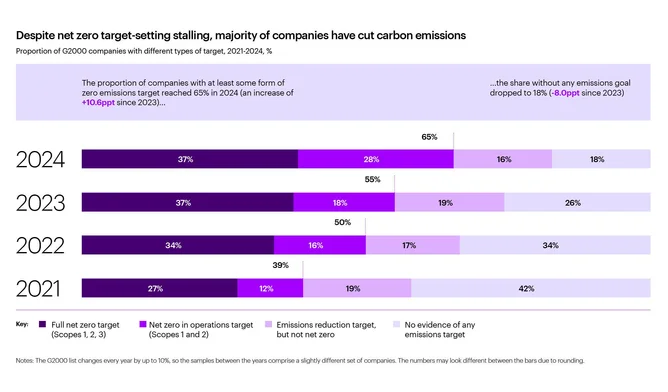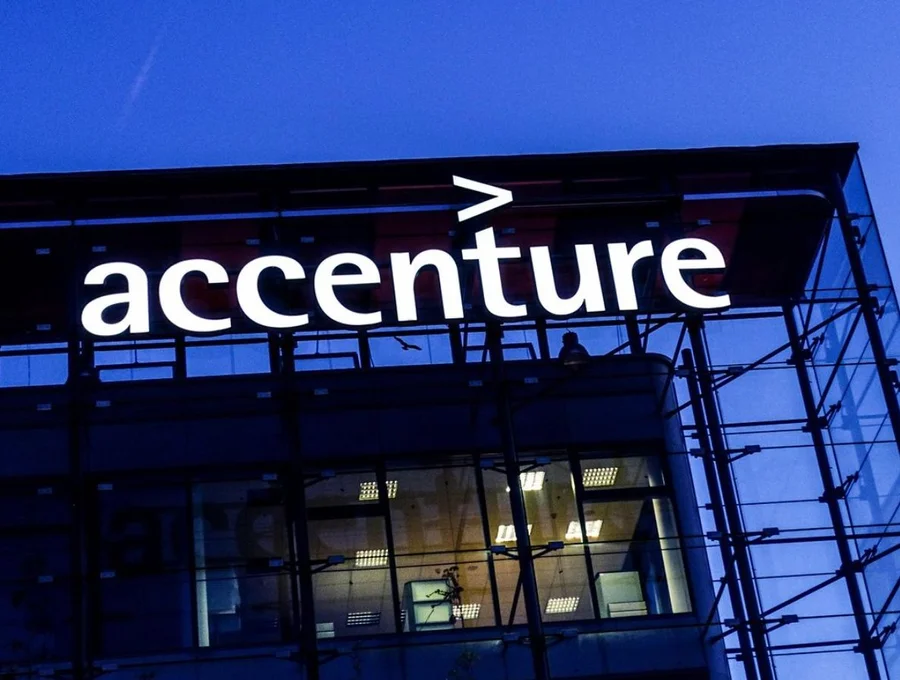Accenture research shows 45% of largest firms increased emissions despite pledges, while artificial intelligence could add 718m tonnes of CO2 by 2030.
The rapid deployment of large language models and generative AI, which require significant computing power and energy consumption, have created a new environmental challenge amid an already faltering transition to net zero emissions.
This technological paradox – where AI could both help and hinder sustainability efforts – has been highlighted in a new research from Accenture, examining how the world’s largest companies are managing their environmental impacts.
According to the report, the expansion of AI infrastructure could generate emissions equivalent to the annual output of Saudi Arabia by the end of the decade, even as the technology industry promotes AI’s potential to optimise energy use and accelerate climate solutions.
Accenture’s Destination Net Zero study of global corporations reveals that 84% of the world’s largest companies will miss their net zero emissions targets by 2050, with nearly half reporting increased carbon output despite climate commitments.

The report, which analysed carbon reduction activities across 2,000 major companies, found that net zero target-setting has plateaued at 37% of firms, though 52% have reduced both emissions and carbon intensity since the 2016 Paris Agreement.
AI emissions set to surge
The research highlights concerns about AI’s environmental impact. AI-related emissions are projected to increase from 68 million to 718 million tonnes of carbon dioxide equivalent by 2030, driven by expanded use of data centres and computing infrastructure. This tenfold increase assumes no significant advances in energy systems, computing technology or algorithms.
Corporate leaders display mixed views on AI’s climate impact. While 42% expect artificial intelligence to reduce emissions within three years, 27% anticipate increases. The longer-term outlook appears more positive, with 65% predicting emissions reductions from AI over a decade.
Standard practice emerges
Companies have begun to standardise their approach to carbon reduction. Five key measures – energy efficiency, waste reduction, renewable energy adoption, circular economy principles and building decarbonisation – are now implemented by more than 80% of surveyed firms. Three in ten companies employ 15 or more carbon reduction strategies.
European businesses demonstrate stronger climate commitments compared to other regions. Nearly half of European companies have implemented 15 or more carbon reduction measures, outpacing North American and Asia Pacific firms by 20 percentage points. One fifth of European firms use AI specifically for reducing emissions, compared to 14% in Asia Pacific and 10% in North America.
European companies have also set more ambitious targets, with 64% establishing net zero goals – more than double the rate of other regions. This positions European firms to address incoming regulations such as the Corporate Sustainability Reporting Directive (CSRD).
“A majority of the world’s largest companies are now cutting their emissions even as the size of their operations and revenues grow,” says Stephanie Jamison, global resources industry practice lead at Accenture. “While this is a significant milestone, to get to net zero by 2050 all of us need to move faster.”
Technology solutions emerge
Accenture has developed its own AI tools for environmental reporting, including a large language model trained on 15,000 environmental, social and governance reports. The system, built using Meta’s Llama 3.1 technology, aims to help companies comply with new regulations while improving reporting efficiency by up to 70%.
The consulting firm reports that only 22% of companies currently using AI employ it for decarbonisation purposes. As Stephanie suggests: “The most realistic scenario is probably one in which AI initially emits more than it abates, until a critical crossover point. Responsible and sustainable scaling of AI means ensuring that crossover point is reached as early as possible.”
“The recent Draghi report highlights the need for Europe to marry decarbonisation with competitiveness,” adds Mauro Macchi, CEO of Accenture’s Europe, Middle East and Africa division. “It’s therefore encouraging to see businesses across the region taking a lead both in setting ambitious net-zero targets and using new technologies such as AI to reduce carbon emissions.”



